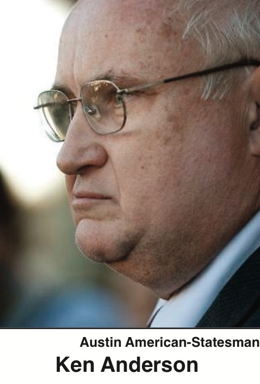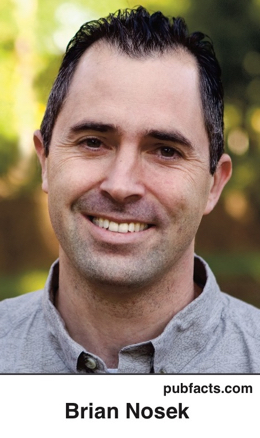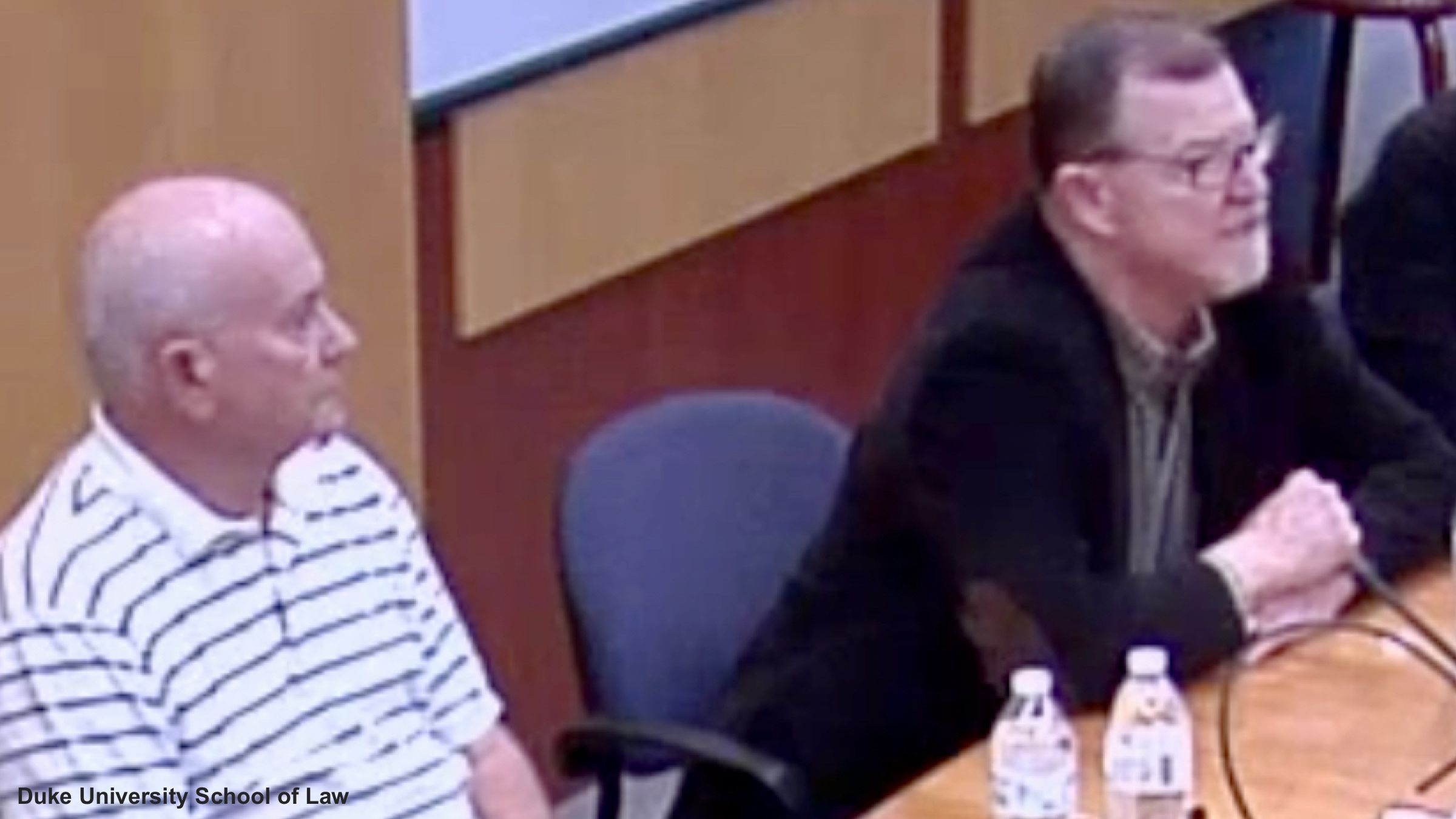Rascals case in brief
In the beginning, in 1989, more than 90 children at the Little Rascals Day Care Center in Edenton, North Carolina, accused a total of 20 adults with 429 instances of sexual abuse over a three-year period. It may have all begun with one parent’s complaint about punishment given her child.
Among the alleged perpetrators: the sheriff and mayor. But prosecutors would charge only Robin Byrum, Darlene Harris, Elizabeth “Betsy” Kelly, Robert “Bob” Kelly, Willard Scott Privott, Shelley Stone and Dawn Wilson – the Edenton 7.
Along with sodomy and beatings, allegations included a baby killed with a handgun, a child being hung upside down from a tree and being set on fire and countless other fantastic incidents involving spaceships, hot air balloons, pirate ships and trained sharks.
By the time prosecutors dropped the last charges in 1997, Little Rascals had become North Carolina’s longest and most costly criminal trial. Prosecutors kept defendants jailed in hopes at least one would turn against their supposed co-conspirators. Remarkably, none did. Another shameful record: Five defendants had to wait longer to face their accusers in court than anyone else in North Carolina history.
Between 1991 and 1997, Ofra Bikel produced three extraordinary episodes on the Little Rascals case for the PBS series “Frontline.” Although “Innocence Lost” did not deter prosecutors, it exposed their tactics and fostered nationwide skepticism and dismay.
With each passing year, the absurdity of the Little Rascals charges has become more obvious. But no admission of error has ever come from prosecutors, police, interviewers or parents. This site is devoted to the issues raised by this case.
On Facebook
Click for earlier Facebook posts archived on this site
Click to go to
Today’s random selection from the Little Rascals Day Care archives….
Click for earlier Facebook posts archived on this site
Click to go to
Today’s random selection from the Little Rascals Day Care archives….
Texas ex-DA pays price, however little and late
 Nov. 20, 2013
Nov. 20, 2013
“GEORGETOWN, Texas – A former Texas prosecutor who won a conviction that sent an innocent man to prison for nearly 25 years agreed Friday to serve 10 days in jail and complete 500 hours of community service.
“Ken Anderson also will be disbarred and fined $500…. Anderson faced up to 10 years in prison if convicted of tampering with evidence in the 1987 murder trial of Michael Morton, (who) was released in 2011 after DNA evidence showed he didn’t beat his wife to death.
“Morton watched from the front row of the gallery Friday as the man who helped convict him now sat at the defense table, just as he once did. Morton smiled and was hugged by family members after the judge adjourned….
“During a weeklong Court of Inquiry earlier this year, special prosecutor Rusty Hardin presented witness testimony and other evidence to show Anderson kept evidence from Morton’s attorneys at his trial….
“Anderson said he couldn’t remember if he had evidence at the time of the trial that could have cleared Morton, but if he had had such material, he would have turned it over to the defense team.”
– From “Former Texas Prosecutor Gets Jail for Conviction that Sent Innocent Man to Prison” by the Associated Press (Nov. 8)
Even the righteous Jack McCoy withheld exculpatory evidence at least once, but of course the “Law & Order” DA was a fictional character – unlike Ken Anderson and the Little Rascals prosecutors and their unfortunate victims.
‘Conditions that would lead to a retraction’? Sorry, no
 Nov. 19, 2012
Nov. 19, 2012
Crucial to the moral panic was a wave of ill-conceived academic and professional literature.
I asked Molly C. Dougherty, editor of Nursing Research, whether her journal had ever published a retraction of “Parental Stress Response to Sexual Abuse and Ritualistic Abuse of Children in Day-Care Centers” (January/February 1990). As is obvious in the title, Susan J. Kelley’s article embraces and promotes the existence of ritual abuse in day cares.
Dr. Dougherty told me that no retraction had appeared in the past or would appear in the future: “The authors of the article were careful to provide a thorough sample description without including information that linked participants to any specific location or case. Conditions that would lead to a retraction are not present.”
This is from my reply to her:
“Of course you are correct that Susan J. Kelley didn’t say which day-care cases were the basis for ‘Parental Stress Response to Sexual Abuse and Ritualistic Abuse of Children in Day-Care Centers.’ (Fells Acres seems a likely candidate, since it was Kelley’s own improper interviewing of child-witnesses that led to the overturning of convictions in that case.)
“But the problem here is not specific to Fells Acres, McMartin or Little Rascals. The entire article was founded on a false belief: that satanic ritual abuse occurred at even one day care. No such ‘multiple victim, multiple offender’ allegations were ever validated. In case after bizarre case, charges were eventually dropped and guilty verdicts overturned.
“The decade-long moral panic finally collapsed in the early 1990s. Today you will not find a single respected academic or professional willing to give credence to the claims of the ritual abuse era.
“By contrast, this excerpt from Kelley’s abstract demonstrated her unquestioning advocacy:
“ ‘The purpose of this study was to examine the stress responses of parents to the sexual and ritualistic abuse of their children in day-care centers…. Parents of sexually abused children reported significantly more psychological distress than parents of nonabused children, with parents of ritually abused children displaying the most severe psychological distress.’
“Plainly, this article was guilty of what you lament in your (unrelated) September 11 blog post:
“failure to address legitimate alternative views and evidence.” And what better example of the “pseudo-science in the guise of science” criticized by Eileen Gambrill?
“I will leave you with a final question: Does Nursing Research really want to leave this article as its last word on the subject?”
So far, Dr. Dougherty’s answer seems to be yes.
When rationalizing is mistaken for reasoning
 June 2, 2015
June 2, 2015
“Psychologist Brian Nosek of the University of Virginia says that the most common and problematic bias in science is ‘motivated reasoning’: We interpret observations to fit a particular idea.
“Psychologists have shown that ‘most of our reasoning is in fact rationalization,’ he says. In other words, we have already made the decision about what to do or to think, and our ‘explanation’ of our reasoning is really a justification for doing what we wanted to do – or to believe – anyway.”
– From “The Trouble With Scientists: How one psychologist is tackling human biases in science” by Philip Ball at Nautilus (May 14)
“Motivated reasoning” ran amok during the “satanic ritual abuse” day-care panic, resulting in journal articles such as “Stress Responses of Children to Sexual Abuse and Ritualistic Abuse in Day Care Centers” and “Satanic Ritual Abuse: A Cause of Multiple Personality Disorder” – and legitimizing testimony by the prosecution’s expert witnesses.
Not surprisingly, Dr. Nosek has found examples of “motivated reasoning” in claims of recovered memory.
“In my intro psych course,” he told me, “I have one lecture that is centered around Lawrence Wright’s fascinating ‘Remembering Satan’….” (about a 1988 case in Olympia, Wash., involving not only SRA allegations but also false confession).
‘I walked into FREEDOM….’

Bob Kelly, left, and Mark Montgomery at Duke Univerisity School of Law on Feb. 18, 2019.
Sept. 22, 2020
A burst of sunshine in these grim times. A note arrived today from Little Rascals Day Care case exoneree Bob Kelly: “Today, 25 years ago, because of Mark Montgomery’s wonderfully written and argued brief, I walked into FREEDOM…. Thanks to him and people like you who have believed in us!”











0 CommentsComment on Facebook